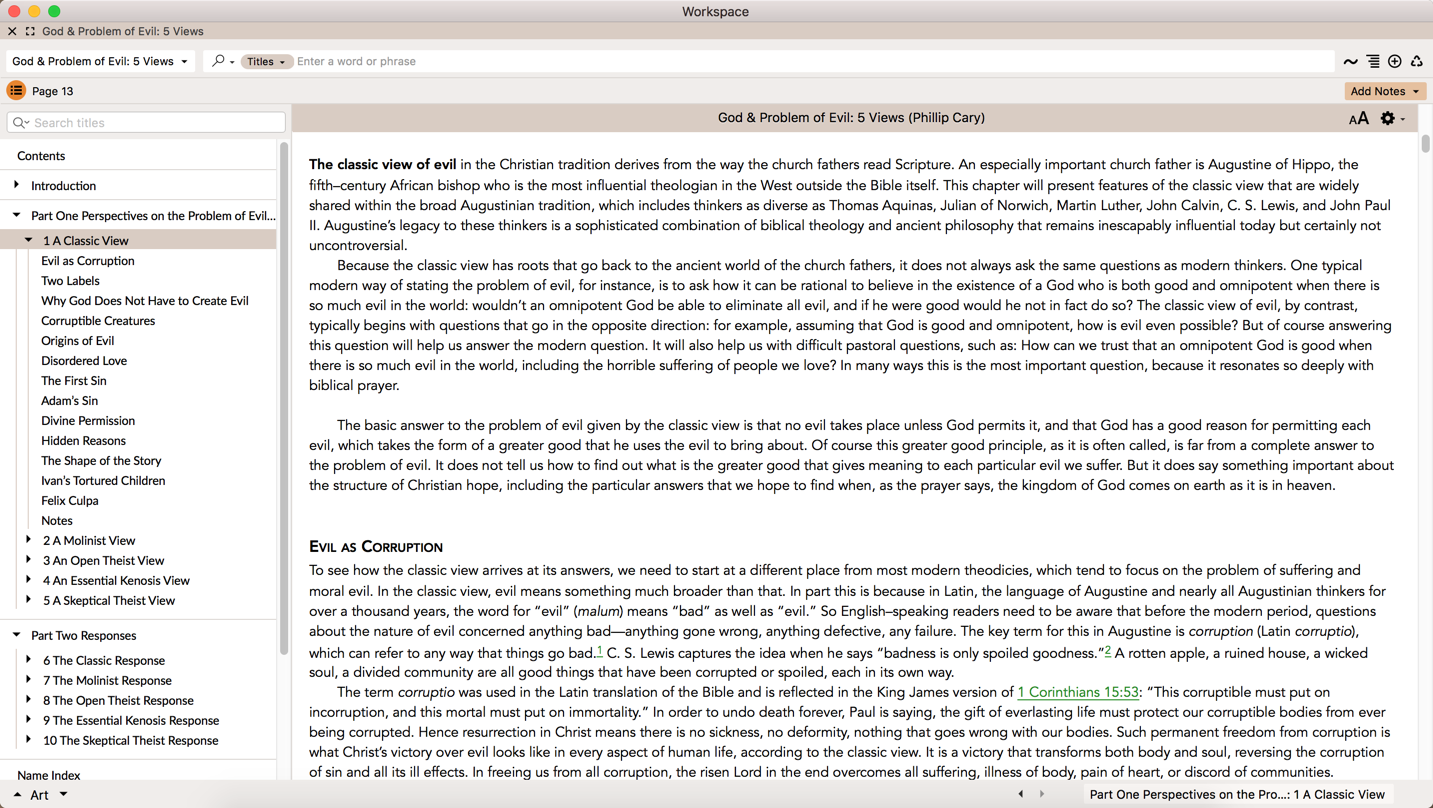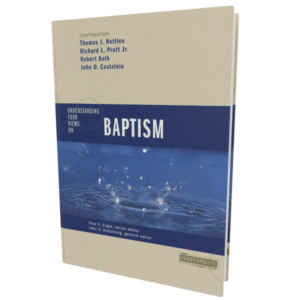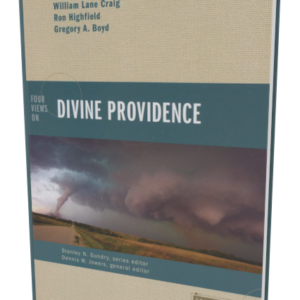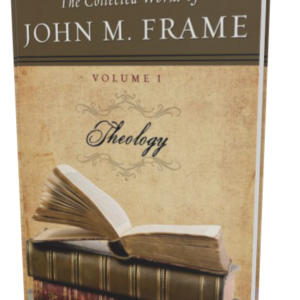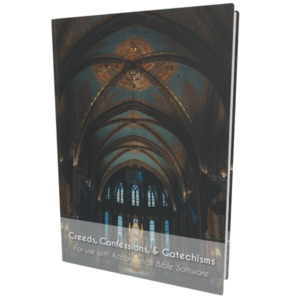God and the Problem of Evil: Five Views (Spectrum Multiview Series) / January 01, 2017
Requires Accordance 10.4 or above.
Evil abounds. And so do the attempts to understand God in the face of such evil.
The problem of evil is a constant challenge to faith in God. How can we believe in a loving and powerful God given the existence of so much suffering in the world? Philosophers and theologians have addressed this problem countless times over the centuries. New explanations have been proposed in recent decades drawing on resources in Scripture, theology, philosophy, and science.
God and the Problem of Evil stages a dialogue between the five key positions in the current debate:
- Phillip Cary: A Classic View
- William Lane Craig: A Molinist View
- William Hasker: An Open Theist View
- Thomas Jay Oord: An Essential Kenosis View
- Stephen Wykstra: A Skeptical Theism View
According to the classic position, associated especially with the Augustinian tradition, God permits evil and suffering as part of the grand narrative of divine providence to bring about the redemption of creation. Molinism modifies the classic view by adding God’s middle knowledge to the picture, in which God has knowledge of what creatures would do in all possible worlds. Open theism rejects the determinism of the classic view in favor of an account of God as a risk-taker who does not know for sure what the future holds. Essential kenosis goes further in providing a comprehensive theodicy by arguing that God cannot control creatures and thus cannot unilaterally prevent evil. Skeptical theism rejects the attempt to provide a theodicy and instead argues that, if God exists, we should not expect to understand God’s purposes.
Edited and with an introduction by Chad Meister and James K. Dew Jr., God and the Problem of Evil hosts a generous and informative conversation on one of the most pressing issues in the Christian life.
About the Series:
Spectrum Multiview Books from IVP Academic offer a range of viewpoints on academic topics about which Christians clearly disagree. The unique format, pioneered by IVP in 1977 with the publication of The Meaning of the Millennium, gives proponents of major positions an opportunity to make their case. Each of the other contributors then offers a brief response. Books in the series range in topic from theology to science, from practical ministry to philosophy. Spectrum books help Christians think more carefully about what they believe and appreciate more the perspectives of others.
Product Details
- Series Name: Spectrum Multiview Series
- Editors: Chad Meister, James K. Dew Jr.
- Authors: Phillip Cary, Stephen Wykstra, Thomas Jay Oord, William Hasker, William Lane Craig
- Publisher: InterVarsity Press USA
- Publish Date: January 1, 2017
- ISBN: 978-0-8308-4024-3
- # of Pages: 201
- Level: Academic
- Categories: Theology
- Publisher Categories: Christian Death & Grief
- Min Acc Version: 10.4
Where to Find
God and the Problem of Evil: Five Views (Spectrum Multiview Series) is included with the following packages
| Category | Code | Title | Price |
|---|---|---|---|
| Primary Collections | Coll13-EngMaster0720 | English Master Collection (July 2020) | 42568 |
| Theology | IVP Views_13 | IVP Spectrum Multiview Books (13 Works) | 269.00 |
| Theology | IVP Views_13up4 | UPGRADE to IVP Spectrum Multiview Books (13 Works) from 4-Volume Bundle | 99.90 |
Reviews
There are no reviews yet.



